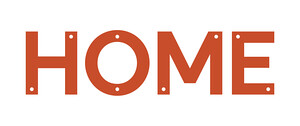Are you allergic to the 21st century?
November 14, 2015–January 3, 2016
First Street
2 Tony Wilson Place
Manchester M15 4FN
United Kingdom
Hours: Tuesday–Saturday 12–8pm,
Sunday 12–6pm
T +44 161 200 1500
HOME is pleased to present a major new group exhibition inspired by auteur filmmaker Todd Haynes’ critically acclaimed motion picture Safe, starring Julianne Moore as Carol White, an affluent suburban housewife in the San Fernando Valley, LA.
Haynes’ influential and understated masterpiece is the starting point for a series of new commissions in moving image, sculpture, print, writing and performance from Claire Makhlouf Carter, Chris Paul Daniels, Yoshua Okon, 2014 Turner Prize nominee James Richards and Camilla Wills, which will be displayed alongside existing works by Michael Dean, Sunil Gupta, Laura Morrison and Jala Wahid. The film stars Julianne Moore as Carol White, a 1980s Californian housewife who becomes increasingly allergic to everyday domestic products and routine activities. White appears trapped, either incapable or unwilling to reconcile the psychological and the physical—a narrative which could be read as a reflection on environmental issues, sexual politics, the AIDS epidemic and suburban disillusionment.
Safe is co-curated by Louise O’Hare and Sarah Perks and is one of a series of upcoming exhibitions at HOME that take a classic or influential film as inspiration. Alongside the exhibition HOME will be publishing a new book, Transactions of Desire: Are you allergic to the 21st century?, edited by the curators and featuring responses by artists and writers to the language of self-help and to Haynes’ film. Contributors include Hannah Black, Sarah M. Harrison, Peter Kingstone, Bridget Penney, Emma Jane Unsworth and John Walter.
Sarah Perks comments: “This exhibition encompasses what HOME is all about: bringing together a diverse set of artists from around the world, each with new contemporary commissions, to debate—in an accessible and meaningful way—aspects of our current climate. Carol White is a central figure that acts as an alibi for us to talk openly about how we might be allergic to the 21st century. Whether we identify with her character or not, we are confronted with our own fears and prejudice.”
Louise O’Hare adds: “We’ve been talking a lot about the film as a critique of the alienation produced by consumer culture, and discussing how it sat as this painfully silent response to the AIDS epidemic—the belated heterosexual response to the crisis, as well as the looming threat of climate change which permeates the film. In some of the original trailers, Safe comes across as this body horror show—and that’s right too. You can see it as a sci-fi, a satire. Its continued resonance—in terms of invisible work, the way society deals with the diseased or fragile body, environmental trauma, and feminism—made it a rich starting point for the exhibition and book.”

